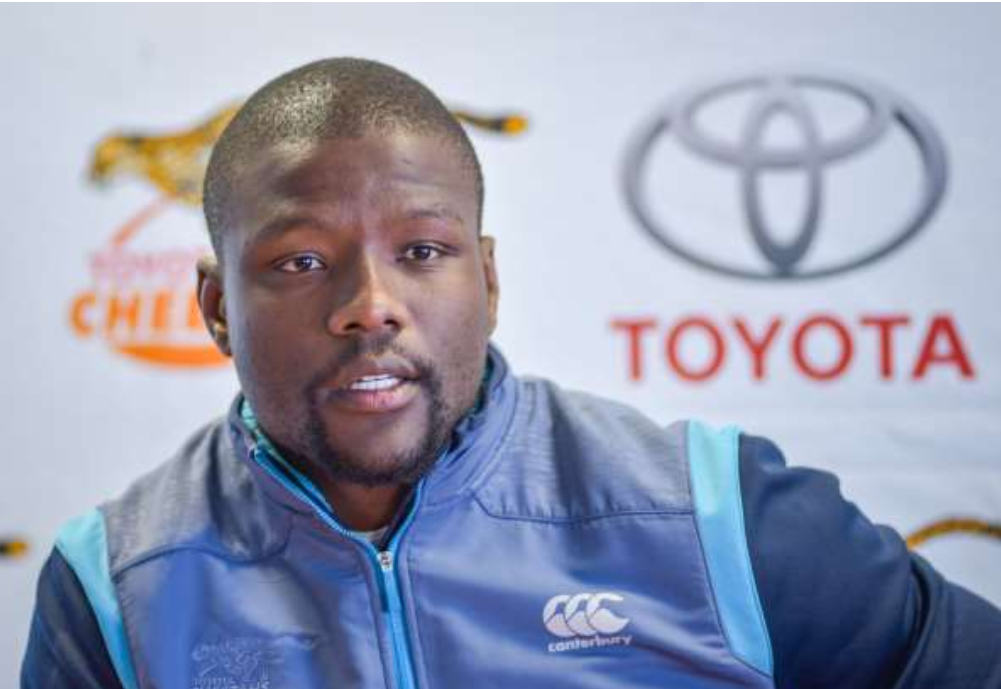Cheetahs loose forward Oupa Mohoje says rugby players need to allow themselves to become more vulnerable and look after their mental health in the sport’s traditionally masculine culture, writes DYLAN JACK.
Mohoje shared some of his views on mental health in rugby for the upcoming edition of SA Rugby magazine.
The 30-year-old – who recently earned a new contract with the Cheetahs after fully recovering from two successive injuries which kept him out for nearly two years – explained how seeing a therapist helped him on his journey back to fitness.
I can’t overstate the importance of talking to someone, get your mind right. #fbf #cheetahsrugby pic.twitter.com/7tN0g5yAwv
— Teboho Mohoje (@OupsMo) July 31, 2020
While rugby’s traditional culture has not always been accepting of those who show mental vulnerability, this is starting to change, with more and more players speaking out about why mental health matters.
‘The rugby culture is very masculine. Rugby is a very masculine sport,’ Mohoje explained. ‘I think it is up to the individual to allow himself to become vulnerable. My experience – I allowed myself to become vulnerable with my therapist. I felt that if everything that I have tried has not worked, let me try this route. It helped me a lot.
‘There is nothing wrong with trying it. We are not in high school anymore where if you do something different people are going to laugh at you. I remember people used to laugh at me if I got new shoes. It’s not a bad thing. If you go, a lot of people will see that what this guy is doing is not entirely a bad thing.
‘A lot of rugby players are going through some things, but they often choose to bottle it up. You don’t have to tell the whole world that you are seeing someone, just your close friends or family. If you feel that it doesn’t help you, then fair enough. But there is nothing wrong with trying it.’
ALSO READ: Rugby pro opens up on mental health stigmas
Mohoje urged young players to find ways to start looking after themselves mentally, whether that is by speaking to a professional or finding themselves another experienced player to act as a mentor.
‘It’s important for rugby players to look after themselves because – as much as you get guys whose careers are smooth – you get a lot of other players whose careers are not as smooth.
‘We have seen a lot of players retire early, a lot of young junior players not even getting a chance to play further only because they are not OK mentally. For the young guys who are coming through, I would advise them to make it their habit to see someone or speak to someone.
‘If a young guy like that doesn’t want to see a psychologist or a therapist, if it is too early for them, then get a mentor instead. Someone who has experience, who can tell you this is how things go, this is normal.’
*The full feature on Mohoje will appear in the upcoming September issue of SA Rugby magazine
Photo: Frikkie Kaap/Gallo Images





